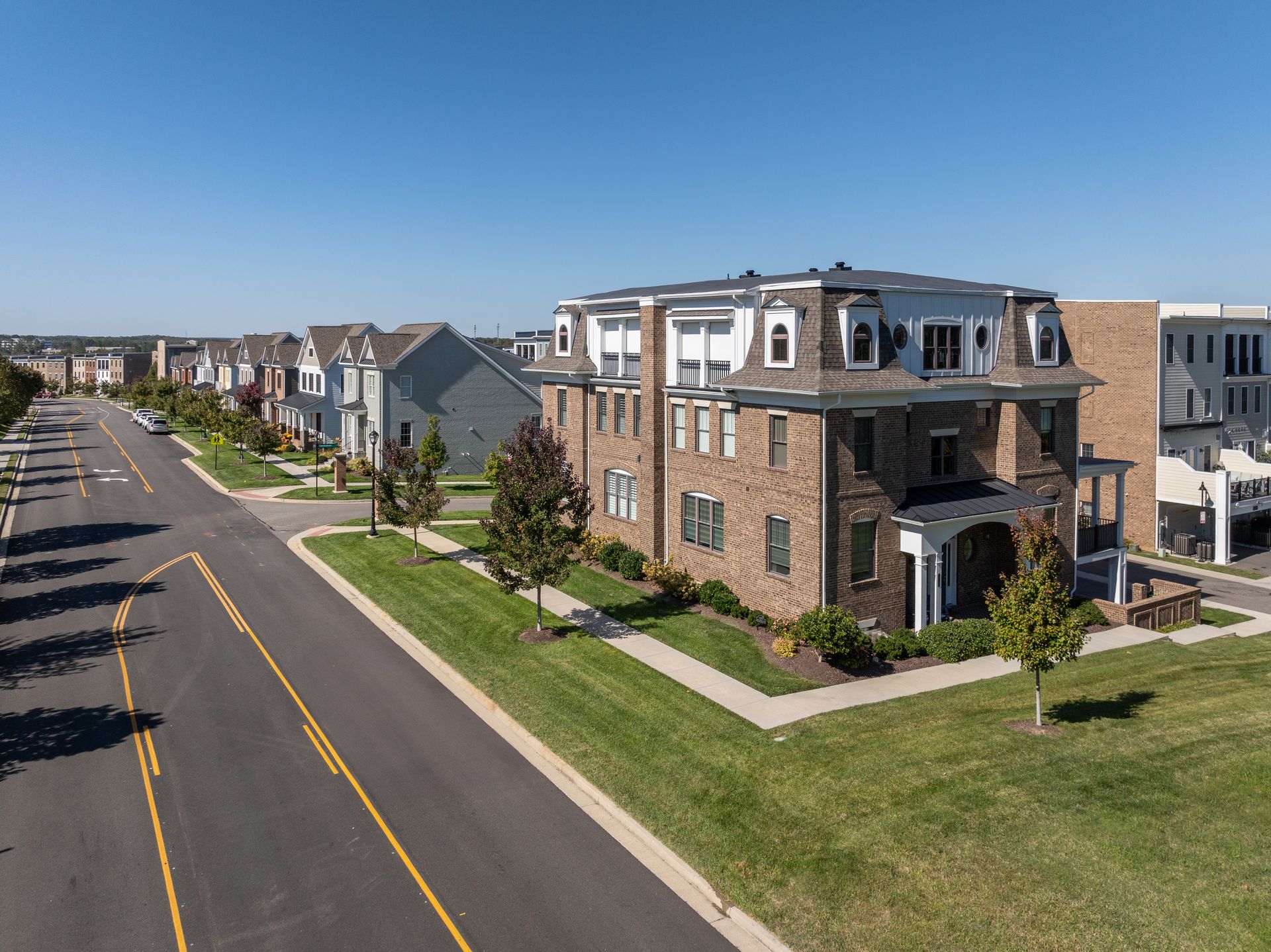Compare the Best Mortgage Rates and Save Big in 2025
Comprehensive Guide to Mortgage Rates in 2025
Understanding mortgage rates is crucial for anyone embarking on a home buying journey or considering refinancing their existing loan. Mortgage rates determine your monthly payment, influencing your overall financial commitment and home affordability. Whether you're a first-time homebuyer or exploring options to refinance, having a grasp of current mortgage rates can help you secure a lower interest rate and save money in the long term.
In 2025, the housing market continues to evolve, with economic factors like the federal reserve policies and bond market trends shaping mortgage interest rates. This guide will walk you through everything from the factors affecting rates to the best tools and strategies to find competitive rates, ensuring you're well-equipped for your home financing decisions.
What Are Mortgage Rates and Why Do They Matter?
Understanding Mortgage Rates
Mortgage rates refer to the interest charged by lenders on a home loan. They play a critical role in determining your monthly mortgage payment and the total payment amount over the life of your loan. A higher mortgage interest rate means you'll pay more in interest over time, while a lower rate can help you save significantly. This is why understanding mortgage rates is essential for managing your finances effectively during the home buying journey.
There are two primary types of mortgage rates: fixed rate mortgage and adjustable-rate mortgages (ARMs). A fixed rate mortgage offers stability, as the interest rate remains the same throughout the loan term, making it easier to predict your monthly payments. On the other hand, adjustable-rate mortgages typically start with a lower rate during the initial fixed-rate period, after which the rate adjusts periodically based on market conditions. While ARMs may offer lower initial rates, they carry the risk of rate changes, which could increase your payment obligation in the future.
Key Factors Influencing Mortgage Rates
Several factors influence mortgage rates, including economic conditions, individual credit profiles, and actions taken by financial institutions like the Federal Reserve. The federal reserve plays a significant role by adjusting interest rates, often referred to as fed rate cuts or increases, to stabilize the economy. These adjustments can directly impact mortgage rates, with lower federal rates generally leading to lower mortgage interest rates.
Your credit score and overall credit profile are also crucial. Lenders assess your credit ratings to determine the risk of lending to you. Borrowers with higher credit scores typically qualify for better rates because they are viewed as less risky. Conversely, those with lower credit scores may face higher rates or additional fees like mortgage insurance.
Lastly, broader economic factors such as the bond market, inflation, and the labor market also influence mortgage rates. For instance, when the bond market experiences fluctuations, it can cause rate changes in the mortgage market. A strong labor market may drive higher rates due to increased demand for loans, while a weaker economy could result in low rates to encourage borrowing.
Current Mortgage Rates and Market Insights
2025 Mortgage Market Overview
As of September 15, 2025, the average rate for a 30-year fixed rate mortgage stands at 6.439%. This represents a slight increase compared to last week, reflecting the ongoing shifts in the housing market. For those considering refinancing, refinance rates currently mirror trends seen in primary home loan rates, providing opportunities for homeowners to reduce their monthly payment by locking in a lower rate.
Looking ahead, experts predict continued rate changes throughout the year due to factors such as inflation, federal reserve policies, and economic conditions. Borrowers are encouraged to monitor these trends closely, as timing can significantly affect the rate they secure. Tools like a mortgage calculator can be invaluable for estimating potential costs based on predicted rate changes.
Mortgage News and Rate Updates
Reliable sources like Freddie Mac and the Wall Street Journal provide regular updates on mortgage news and market trends. According to recent data points, the bond market and labor market are key indicators of future rate changes. Inflation remains a concern, influencing the federal reserve's decisions and impacting mortgage rates today.
Economic trends suggest that while low rates may not return to pre-pandemic levels, there are still opportunities for rate reduction. Borrowers should remain informed through trusted sources and consider consulting a loan officer or financial advisor for personalized advice. Staying updated on rate changes and understanding how they relate to the broader mortgage market can help borrowers make informed decisions.
How to Find the Best Mortgage Rates
Tools to Compare Rates
Finding the best mortgage rates begins with comparing options from different lenders. Tools like a mortgage calculator and home affordability calculator are essential for understanding your financial limits and estimating your monthly payment. These calculators take into account factors such as the loan term, home price, and mortgage interest rate to give you a clearer picture of your payment obligation.
For example, a payment example can illustrate how different rates and loan assumptions affect the total cost of a mortgage. By inputting data points like your purchase price and expected loan size, you can see how factors like discount points or a lower rate could impact your payment amount. This allows you to make more informed decisions when choosing a mortgage type.
Strategies for Securing Competitive Rates
Securing competitive rates often requires a proactive approach. Improving your credit ratings is one of the most effective ways to qualify for a lower interest rate. Paying off existing debts, avoiding high balances on credit cards, and ensuring timely payments can significantly boost your credit score. Additionally, demonstrating a stable income and employment history improves your chances of credit approval.
Another strategy is to explore rate discounts through discount points. By paying upfront for mortgage points, you can reduce your mortgage interest rate and save money over the long term. This option is particularly beneficial for borrowers planning to stay in their home for an extended period. Additionally, considering refinance interest rate options may help you achieve a lower monthly payment or take advantage of changing rates in the mortgage market.
Finally, timing your decision wisely can make a significant difference. Lenders may offer competitive rates during certain periods, and locking in a rate through a mortgage rate lock can protect you from potential increases. Staying informed through mortgage news and regularly comparing rates can help you identify the best opportunities for securing favorable terms.
Breaking Down Mortgage Costs and Fees
What to Know About Closing Costs
When securing a mortgage, closing costs are an important consideration as they represent the various fees associated with finalizing your loan. These costs can include a loan origination fee, appraisal fees, title insurance, and more. While the specific amount varies based on factors like loan size and property type, closing costs typically range from 2% to 5% of the purchase price of the home.
Understanding the loan estimate provided by your lender is essential for navigating closing costs. This document outlines key details, including the annual percentage rate (APR), which reflects the total cost of borrowing, including interest and fees. It's important to compare APR information from different lenders to ensure you're getting the best deal. Keep in mind that while a lower APR can save you money over the life of your loan, it’s also crucial to review individual fees, such as the loan origination fee, for a complete picture.
Other Financial Considerations
Beyond closing costs, there are other financial aspects to consider when budgeting for your home purchase. Property taxes and homeowners insurance are recurring expenses that can significantly impact your monthly mortgage payment. The amount of property taxes you’ll pay depends on your home value and local tax rates, while homeowners insurance premiums are determined by factors such as property type and coverage level.
For some borrowers, mortgage insurance may also be required, especially if your down payment is less than 20% of the home price. This insurance protects the lender in case of default but increases your overall payment obligation. Fortunately, there are affordable housing programs and government-backed loan options, such as those offered by the Federal Housing Administration, that can help reduce the financial burden for eligible borrowers. Exploring these programs can be particularly beneficial for first-time homebuyers or those with limited funds.
Exploring Mortgage Options for Your Needs
Choosing the Right Loan Type
Choosing the right loan type is a critical step in the home financing process, as it directly affects your monthly payment, loan term, and overall financial stability. The 30-year loan is one of the most popular options due to its longer term, which spreads payments out over time, resulting in lower monthly payments. However, shorter loan term options, such as 15-year loans, offer the advantage of reduced total interest paid over the life of the loan, though monthly payments will be higher.
Adjustable-rate mortgages (ARMs) are another option to consider, particularly if you anticipate moving or refinancing before the initial fixed-rate period ends. These loans often feature lower introductory rates, making them attractive for borrowers seeking short-term savings. However, ARM rates can fluctuate based on market conditions, potentially leading to higher payments in the future. Understanding the risks and benefits of each loan type is essential for finding a mortgage that aligns with your financial goals.
Tailored Options for Property Type
The type of property you plan to purchase also influences your mortgage loan options. For instance, financing for single-family homes is typically straightforward and widely available, making it a popular choice for primary residence buyers. On the other hand, purchasing a vacation home or investment property may involve stricter lending requirements and higher interest rates due to the increased risk perceived by lenders.
Programs tailored to specific needs, such as those offered by the Department of Veterans Affairs for servicemembers, can provide more favorable terms, including lower rates and reduced closing costs. Whether you’re buying a primary residence, vacation home, or investment property, exploring the various loan programs available can help you identify financing options that meet your unique needs and budget. Consulting with a knowledgeable loan officer can also provide valuable guidance throughout this process.
Steps to Navigate Your Home Buying Journey
Embarking on your home buying journey requires careful planning and a clear understanding of the loan process. Working closely with a loan officer is essential for ensuring your application is complete and accurate, improving your chances of loan approval. From gathering documentation to reviewing your credit profile, each step plays a vital role in securing the right mortgage.
For eligible borrowers, programs like VA loans and those offered by the Federal Housing Administration can provide significant advantages, including reduced down payments and competitive rates. Leveraging social media and online resources to find reputable lenders and request a call back for personalized assistance can streamline your experience. With the right tools and support, you can confidently navigate the complexities of home financing and achieve your dream of homeownership.
Ready to work with Sparrow Home Loans?
Let's connect! We’re here to help.
Send us a message and we’ll be in touch.
Or give us a call today at 804-878-0509
Agency Contact Form
More Marketing Tips, Tricks & Tools










